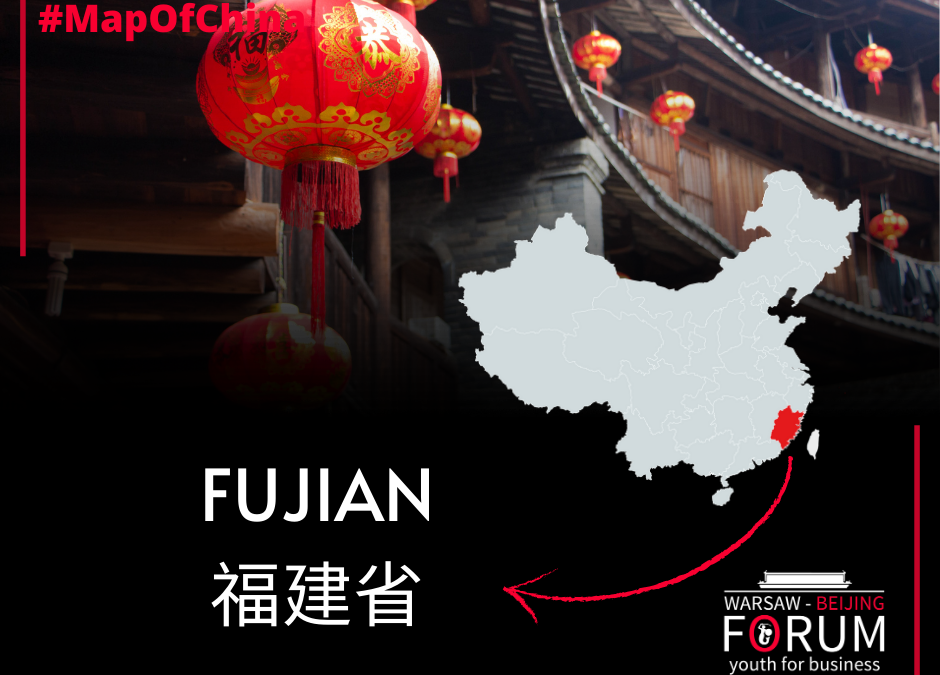Fujian 福建
Fujian is a mostly mountainous province on the southeastern coast of China, as well as one of China’s key forest regions. Traditionally said to be “eight parts mountain, one part water, and one part farmland” (八山一水一分田) is classified among the most culturally and linguistically diverse provinces in China. Fuzhou, Fujian’s capital, is a center for commercial banking, designer brands and timber-working, engineering, but also papermaking and textile industries. While handicrafts remain important in the rural areas, the city is famous for its lacquer and wood products. Fujian’s coastal location has meant that maritime trade has always played a chief role in its history and economy – it has abundant fishery resources with more than a hundred species of fish of economic value and ranks as a major area of aquatic production in China.
Although agriculture’s share in GDP has been decreasing over the years, it is still important. Fujian is largely a net importer of food grains. Among its major agricultural crops there are sugarcane, sweet potatoes, wheat, barley, lychees, peanuts, citrus fruit, rice and tea. Its sugarcane yields are one of the highest in the country and while the export of tea from Fuzhou to the European market has become insignificant, Fujian has continued to be a great tea-growing province and supplies a large domestic market. A special feature is its production of flower-scented teas, which are manufactured at factories in Fuzhou.
The province’s mineral wealth includes coal, iron, copper, gold, graphite and kaolin (china clay) for making porcelain. Mines are widely scattered throughout the province.
Fujian has long been known for the high quality and great variety of its traditional arts and crafts products. Notable are “bodiless” lacquerware (a method of molding objects out of pure lacquer), Shoushan stone carvings, cork pictures, Xiamen bead embroidery, Quanzhou puppets, bamboo wares, toys, fireworks, and art pottery. These products are all well known in China and are exported in large quantities. Many foreign firms have operations in Fujian, they include Boeing, Dell, GE, Kodak, Nokia, Siemens, Swire, TDK and Panasonic.
Last but not least, Fujian is home to a number of tourist attractions, including four UNESCO World Heritage Sites, such as the Wuyi Mountains or Gulangyu Island.
Author: Katarzyna Borowiec


Recent Comments